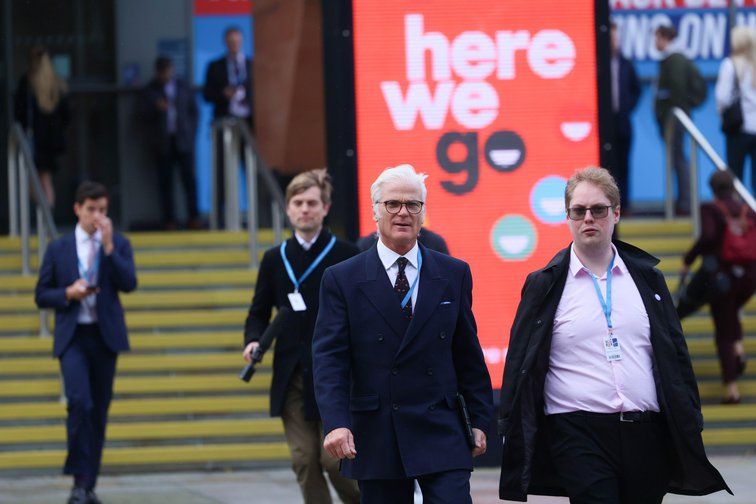MPs claim that requirement to oppose racism would be ‘Orwellian’
Tory MP Desmond Swayne objected to ‘anti-racism’ commitment in case it silenced far-right politicians – even though he finds them ‘abhorrent’

MPs have claimed that a new requirement that parliamentarians be anti-racist would stop them speaking in the Commons, saying the idea was “Orwellian” and “rubbish”.
The committee on standards recommended in November that a new principle of ‘respect’ should be added to the MPs Code of Conduct. The change would require MPs to “demonstrate anti-discriminatory attitudes and behaviours through the promotion of anti-racism, inclusion and diversity”.
But the committee has received letters from the government, as well as 11 MPs, objecting to the addition, which is currently under consultation.
The government suggested that the addition would have a “chilling effect on free speech” in its official written submission to the committee.
“We would not want to stifle legitimate debate on politically contentious issues which are important to our democracy – as an indirect consequence of the proposed new requirement for ‘anti-discriminatory attitudes’ or demonstrating ‘inclusion and diversity’,” wrote Commons leader Mark Spencer and chancellor of the Duchy of Lancaster Stephen Barclay.
Several MPs claimed that the meaning of anti-racism was not defined or was too politicised.
The Tory MP Desmond Swayne said the change was a “step towards Orwell’s concept [of] ‘thought crime’” and would silence far-right politicians.
“Though I find the views of certain ‘far right’ political organisations abhorrent it would be a grave error to, in effect, potentially exclude from Parliament any representative for whom they might secure election,” he wrote.
Tory MP Aaron Bell said the new principle would “represent a significant flashpoint for both definitional arguments about the meaning of ‘inclusion’, ‘diversity’ and in which ways one can be said to be behaving in an anti-racist manner”.
Bell added: “These are not un-contested terms and are loaded with meaning and emotion for marginalised communities.”
Maurice Mcleod, the chief executive of anti-racism organisation Race on the Agenda, said Bell’s comments were “strange”.
“Is what he’s saying that we don’t want to talk about this stuff, because it makes Black people upset and they’re sensitive? That’s kind of what it feels like,” he told openDemocracy.
‘This would make its way to my Wiki page’
Elsewhere in the consultation, Tory MP Amanda Solloway wrote: “The need to ‘demonstrate anti-discriminatory attitudes and behaviours” is particularly dependent on one’s perspective.”
Another MP said they worried that any failure to abide by the proposed anti-racism code could make its way to their Wikipedia page.
“I have been repeatedly accused of racism by political opponents for standing up for victims of CSE [child sexual exploitation], despite deliberately not referencing the ethnicity of perpetrators. This could now become a formal complaint, with a headline of ‘MP reported to standards commissioner for racism’. This would then make its way to my Wiki page in perpetuity,” wrote Tory MP Lucy Allen.
Mcleod said the consultation responses were another example of “disingenuous” objections to anti-racism.
“There’s a habit at the moment of obsessing about terminology, rather than dealing with the actual issues at play. So rather than deal with structural racism, you argue about whether structural racism is a thing,” he said.
“Instead of being honest and saying: ‘We just don’t like this, we feel like this is making us ask questions we don’t really want to ask’, [MPs] are rubbishing the language,” he added.
One anonymous MP who told the committee that the proposal was “a load of rubbish” and that it was “just trying to be woke”.
Another, who also did not want to be named, said that making MPs commit to anti-racism would be “promoting a particular agenda”.
Only one named Labour MP wrote to the committee to object to the proposal. Thangam Debbonaire, the shadow Commons leader, said that “introducing a formal principle of respect could dramatically increase the amount of vexatious or inappropriate complaints that are politically or personally motivated”.
But Mcleod said: “The only controversy around anti-racism is whether people want to adhere to it or not – whether people actually think that ending structural racism is something you want to do or not.
“I don't think that's controversial. I don't think that in the society we claim to live in, but that's something that's open for debate. My equality isn't a question.”
MPs are already bound by the seven Nolan principles of public life, implemented in 1995, which include a requirement that they act “without discrimination or bias” but do not make an explicit reference to racism.

%20(2)%20(2)%20(1).png)
No comments:
Post a Comment
Note: only a member of this blog may post a comment.